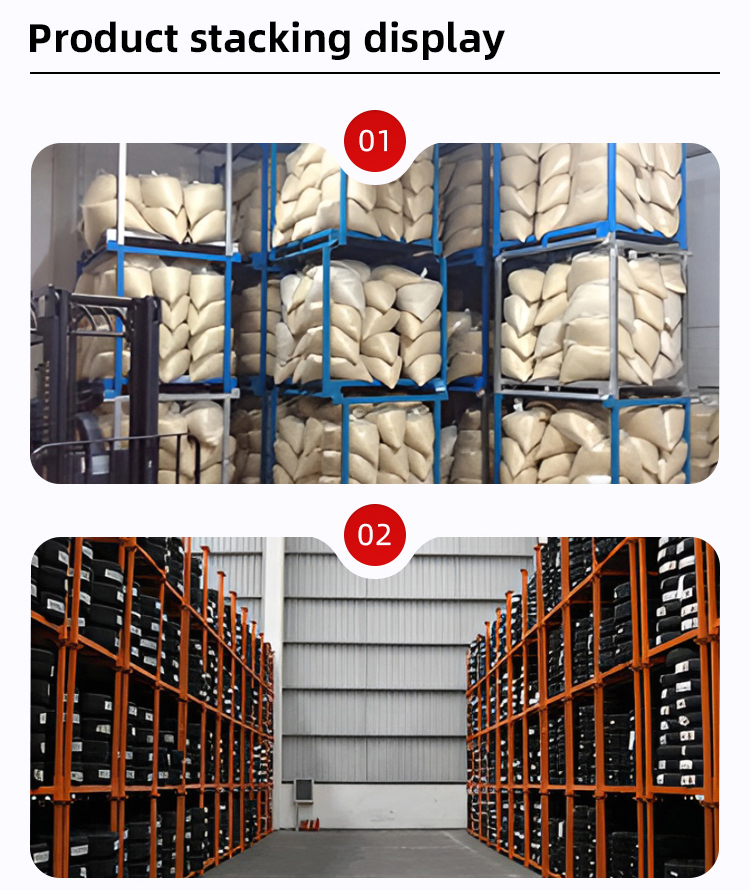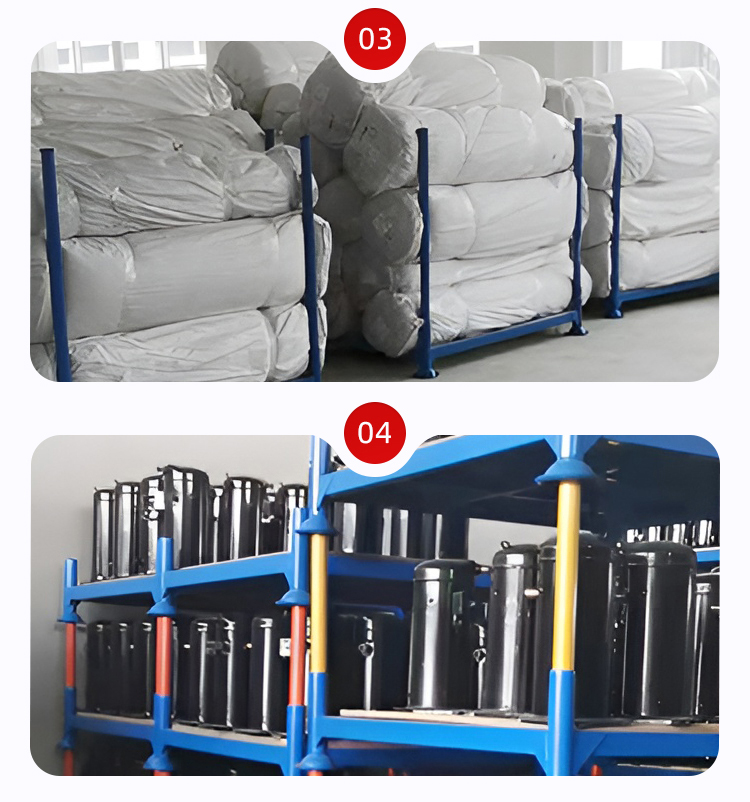
Introduction
In the ever-evolving landscape of logistics and supply chain management, the choice of materials and equipment can profoundly influence operational efficiency, safety, and overall cost-effectiveness. Among the various options available, steel pallets have gained prominence as a robust and versatile solution for transporting and storing goods. This article delves deeper into the myriad benefits of steel pallets, their diverse applications across industries, and the reasons they may be the ideal choice for your logistics operations.
What Are Steel Pallets?
Steel pallets are platforms constructed from steel, specifically designed to facilitate the storage and transportation of a wide range of goods. Unlike traditional wooden pallets, steel pallets offer superior durability and strength, making them suitable for heavy-duty applications. They come in various sizes and configurations, allowing businesses to select the most appropriate design for their specific needs.

Types of Steel Pallets
Flat Steel Pallets: Simple and versatile, these pallets are commonly used for standard storage and transportation.
Stackable Steel Pallets: Designed for efficient vertical storage, stackable pallets help maximize space in warehouses.
Collapsible Steel Pallets: These pallets can be folded when not in use, providing flexibility and saving space.
Custom-Made Steel Pallets: Tailored to meet specific operational requirements, these pallets can be designed to accommodate unique load dimensions or industry-specific regulations.
Benefits of Steel Pallets
1. Durability and Longevity
Steel pallets are renowned for their exceptional durability. Constructed from high-quality steel, they are resistant to wear and tear, able to withstand heavy loads, and are much less likely to break or warp compared to wooden pallets. This longevity translates to lower replacement costs over time, making steel pallets a smart investment for businesses.
2. High Load Capacity
One of the standout features of steel pallets is their impressive load capacity. They can support significantly heavier loads than wooden pallets, making them ideal for industries that require the transportation of heavy machinery, industrial equipment, or bulk materials. Their robust construction ensures they can handle the rigors of heavy-duty use without compromising safety.
3. Hygienic and Easy to Clean
For industries such as pharmaceuticals, food and beverage, and healthcare, maintaining hygiene is critical. Steel pallets are non-porous and can be easily cleaned and sanitized, preventing contamination. This feature is particularly important for businesses that must comply with strict health and safety regulations, ensuring that products remain safe throughout the supply chain.
4. Fire Resistance
Steel pallets inherently possess fire-resistant properties, making them a safer choice in environments where fire hazards are a concern. Unlike wooden pallets, which can catch fire easily, steel pallets do not pose the same level of risk, contributing to a safer working environment for employees and equipment.
5. Environmental Benefits
In an era of increasing environmental awareness, steel pallets stand out as an eco-friendly option. They are recyclable, meaning that when a steel pallet reaches the end of its life cycle, it can be melted down and repurposed. This reduces waste and promotes sustainability in logistics operations, aligning with global efforts to minimize environmental impact.
6. Cost-Effectiveness
While the initial investment in steel pallets may be higher than that of wooden pallets, their durability and longevity lead to significant cost savings over time. Businesses benefit from reduced replacement costs, lower maintenance expenses, and improved operational efficiency, ultimately resulting in a lower total cost of ownership.
7. Weather Resistance
Steel pallets do not absorb moisture, making them an excellent choice for environments with high humidity or exposure to liquids. Unlike wooden pallets, which can swell, rot, or harbor pests, steel pallets maintain their structural integrity under varying weather conditions.
Applications of Steel Pallets in Logistics
1. Heavy Manufacturing
In heavy manufacturing industries, steel pallets are essential for transporting large and heavy components. Their ability to support significant weight makes them indispensable in factories and assembly lines, where efficiency and safety are critical.
2. Warehousing and Distribution
Steel pallets are widely used in warehouses for storing goods. Their stackable design helps optimize storage space, allowing for efficient inventory management and easy access to products. Businesses benefit from enhanced space utilization, which is especially important in high-density storage environments.

3. Food and Beverage Industry
In the food and beverage sector, hygiene and safety are paramount. Steel pallets can be easily cleaned and sanitized, making them suitable for handling food products. Their durability ensures that they can withstand the demands of cold storage and transportation, maintaining product integrity throughout the supply chain.
4. Pharmaceuticals and Healthcare
Similar to the food industry, the pharmaceutical sector requires high hygiene standards. Steel pallets provide a safe and clean solution for transporting sensitive medical supplies and equipment. Their ability to withstand rigorous cleaning protocols makes them ideal for use in hospitals, laboratories, and pharmaceutical manufacturing facilities.
5. Construction and Heavy Equipment
Steel pallets are commonly used to transport and store heavy construction materials and equipment. Their robust design ensures safe handling and storage, reducing the risk of damage to valuable assets. Additionally, the fire-resistant properties of steel pallets make them suitable for construction sites where fire hazards may be present.
6. Automotive Industry
In the automotive sector, steel pallets are utilized for transporting parts and components during manufacturing and distribution processes. Their strength and durability make them ideal for handling heavy automotive components, ensuring safe and efficient transportation throughout the supply chain.
7. Retail and E-Commerce
As the retail and e-commerce industries continue to grow, so does the need for efficient logistics solutions. Steel pallets are increasingly being used to transport goods to distribution centers and retail locations, providing a reliable option for moving heavy and bulky items.
Conclusion
Steel pallets offer a multitude of benefits that position them as an excellent choice for logistics and supply chain operations. Their durability, high load capacity, hygiene, fire resistance, and environmental advantages set them apart from traditional wooden pallets. As industries continue to evolve and prioritize efficiency and safety, steel pallets are likely to play an increasingly vital role in modern logistics.
For businesses looking to enhance their operational capabilities, investing in steel pallets can lead to improved productivity, significant long-term savings, and a commitment to sustainability. By choosing steel pallets, companies can ensure that they are well-equipped to handle the demands of today’s fast-paced logistics environment while safeguarding their products and the well-being of their employees.
Related News
- Enhancing Inventory Management with Stee... 2020-12-12
- Understanding Steel Pallets: Benefits an... 2020-12-12
- Safety First: The Role of Equipment Desi... 2020-12-12
- The Benefits of Using Hook Lift Systems ... 2020-12-12
- Custom Solutions: Tailoring Equipment to... 2020-12-12
- Transforming Waste Disposal with Tipper ... 2020-12-12
- The Future of Waste Recycling Containers 2020-12-12
- The Versatility of Roll-On/Roll-Off Dump... 2020-12-12
